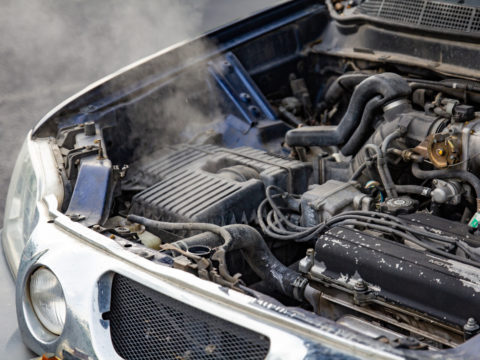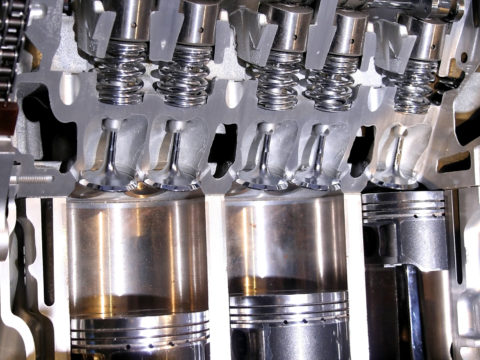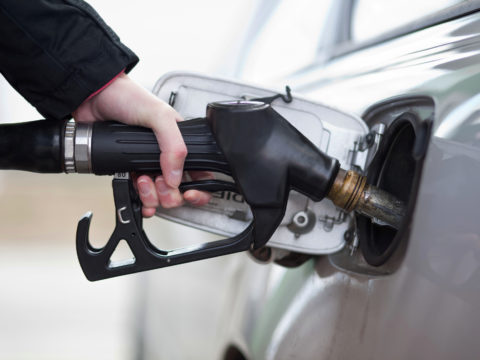Diesel engines have long been renowned for their dependability and fuel economy, yet not all measure up to this recognition, and several factors should be considered before making a purchase.
While some engines are reliable, others have less of a reputation for durability. Read on to learn about these under-the-hood powerhouses and how you can decide on your next automotive investment.
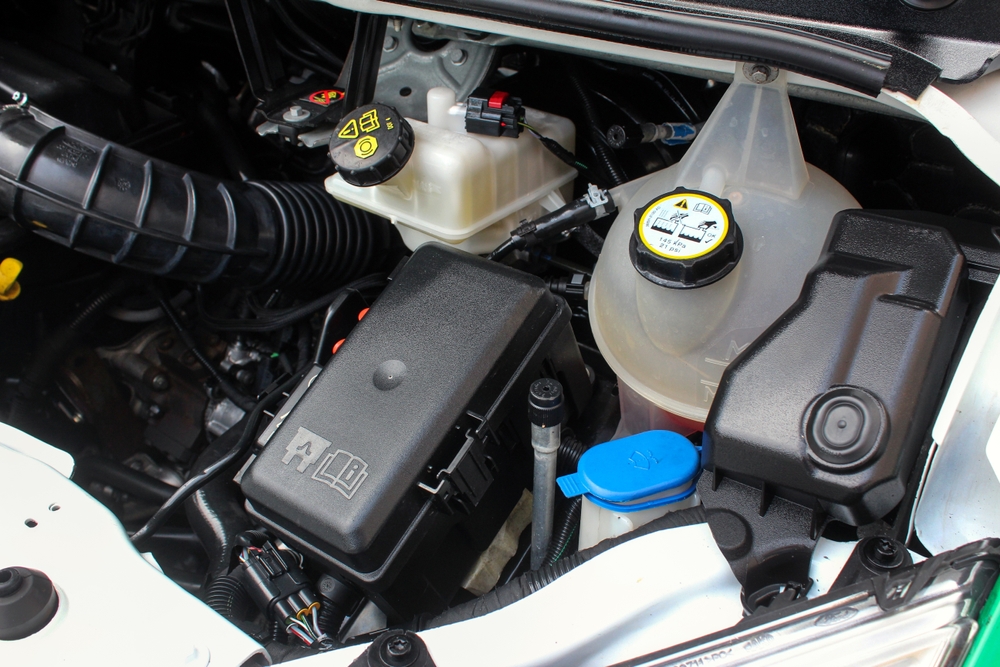
Contents
What Kind of Diesel Engine Does Ford Use?
Ford’s diesel engine lineup includes Power Stroke Diesel Engines, offering improved fuel efficiency, performance, and reliability compared to earlier models. These engines are designed with advanced technology, offering better fuel efficiency, performance, and reliability than their predecessors.
The most popular diesel engine used by Ford is the Power Stroke. This family of turbocharged V8 engines has been in production since 1994 and can be found in various models such as the F-Series Super Duty trucks (F-250, F-350), E-Series vans, and even some motorhomes.
In addition to the powerful Power Strokes for heavy-duty applications, Ford offers smaller-capacity diesel engines under its EcoBlue range for passenger cars and light commercial vehicles like the Transit Connect van or Ranger pickup truck.
Ford Diesel Engine Problems
Ford diesels, renowned for their power and dependability, have been known to encounter some issues.
In 2003, the 6.0L Power Stroke engine was released as a more environmentally friendly alternative, but it had several design flaws that led to problems, including exhaust gas recirculation cooler failure, head gasket issues, and fuel injector problems.
The 6.4L Power Stroke, designed as an improvement over its predecessor, also suffered from issues such as radiator leaks and fuel dilution.
The current generation 6.7L Power Stroke has addressed many previous issues but still faces some challenges, such as turbocharger failure and emission system issues.
In addition to these specific issues, Ford diesel engines may experience common diesel-related problems such as water pump failure, glow plug malfunctioning, or high-pressure oil pump failure.
Regular maintenance is essential for preventing these issues from becoming primary concerns.
Are Ford Diesel Engines Reliable?
Ford diesel engines have a mixed reputation when it comes to reliability. Some models are known for their durability and longevity, while others have faced numerous issues that can lead to costly repairs. The newer Ford diesel motors are more dependable than their predecessors, owing to modernized technology and improved production techniques.
Introduced in 1994, the Power Stroke series of engines have gone through several generations with varying levels of reliability, including long-lasting performance.
Another popular Ford diesel engine is the Duratorq, which has been used in various models since 2000. While generally considered reliable, some Duratorq engines have faced issues with injectors and timing belts.
Which Ford Diesel Engines To Avoid by Year
Ford has produced a variety of diesel engines over the years, and while many have proven reliable, some models have experienced issues.
2003-2007: 6.0L Power Stroke
The 6.0L Power Stroke engine was introduced in 2003 but quickly gained a reputation for being problematic due to its complex fuel system and high-pressure oil pump failures. Additionally, this engine faced issues with the EGR (Exhaust Gas Recirculation) cooler and head gaskets, leading to coolant leaks and overheating problems.
2008-2010: 6.4L Power Stroke
In an attempt to address the shortcomings of the previous model, Ford released the 6.4L Power Stroke. However, this version also had its share of troubles, including turbo failures, fuel dilution in oil resulting from post-injection during DPF (Diesel Particulate Filter) regeneration cycles, and radiator leaks.
Early Model Years: Navistar-Sourced Diesels (Ford F-Series)
Ford’s initial collaboration with Navistar resulted in various unreliable diesel engines, such as those found in older F-Series models, characterized by fuel system issues, oil cooler failures, and check engine light concerns.
2011-2016: 6.7L Power Stroke (First Generation)
While the first generation of the 6.7L Power Stroke significantly improved over previous models, some early production units experienced turbocharger failures due to ceramic ball bearing wear (source) and reports of exhaust temperature sensor malfunctions causing false “Check Engine” warnings.
Ford Transit Diesel Engines (Pre-Euro 5)
Ford Transits equipped with pre-Euro 5 diesel engines have suffered from injector and high-pressure pump issues. If you’re considering a used Ford Transit van, opt for one with a Euro 5 or newer compliant engine.
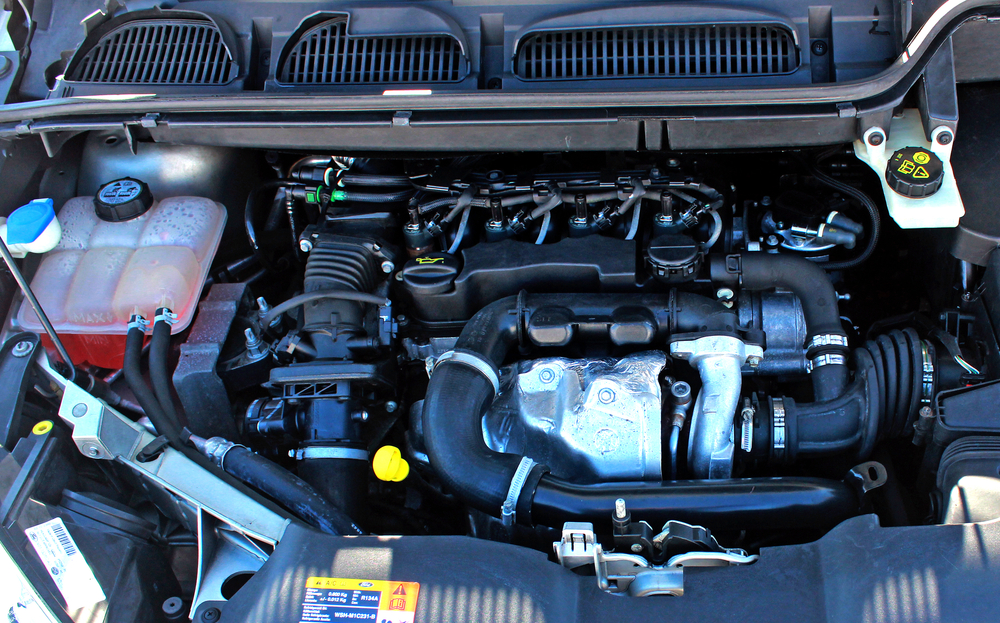
Best Ford Diesel Engine Years
Ford has generated several remarkable diesel motors throughout the years, with some models noteworthy for their dependability and power.
1994-1997: 7.3L Power Stroke
The 7.3L Power Stroke is renowned for its durability and dependability, thanks to its direct injection technology and turbocharger providing excellent power output while conserving fuel. Introduced in 1994, this engine featured direct injection technology and a turbocharger, providing impressive power output while maintaining fuel efficiency.
2008-2010: 6.4L Power Stroke
The 6.4L Power Stroke was introduced in response to stricter emissions regulations and offered significant improvements over its predecessor, the problematic 6.0L model. With twin sequential turbochargers and an improved EGR system, this engine delivered better performance without sacrificing reliability.
2011-Present: 6.7L Power Stroke
Ford’s current flagship diesel engine, the 6.7L Power Stroke, has been praised for its durability since it debuted in 2011 as part of Super Duty trucks lineups like the F250 or F350 series. This powerful V8 features advanced technologies such as a high-pressure common-rail fuel injection system, contributing to its excellent performance while meeting stringent emission standards.
2015-Present: 3.2L Power Stroke
Available in the Ford Transit van, the 3.2L Power Stroke is a smaller diesel engine with excellent fuel efficiency and performance for those needing a reliable work vehicle. With its compact size and impressive torque output, this engine has become popular among commercial fleet operators.
2018-Present: 3.0L Power Stroke
The newest addition to Ford’s diesel lineup, the 3.0L Power Stroke, was introduced in the F-150 pickup truck as an option for those seeking better fuel economy without sacrificing towing capabilities or payload capacity. This V6 engine utilizes advanced technologies such as variable geometry turbocharging and a high-pressure common-rail injection system, which results in a strong performance while meeting strict emissions standards.
Ford Diesel Engines Pros and Cons
Ford diesel engines have gained popularity among truck drivers for their potency, fuel economy, and longevity. However, like any other engine type, they come with their own set of advantages and disadvantages. Let’s look at the pros and cons of Ford’s diesel engines.
| Pros | Cons | ||
| Fuel Efficiency | Diesel engines are known for their fuel efficiency compared to their gasoline counterparts. | Initial Cost and Maintenance Expenses | Diesel engines tend to be more expensive upfront than their gasoline counterparts, and maintenance costs can be higher due to the need for specialized diesel engine oil and fuel filters. |
| Torque and Towing Capacity | Diesel engines produce high torque at low RPMs. This translates into greater towing capacity for trucks like the Ford Super Duty series, which makes them ideal for heavy-duty work. | Noise and Vibration | Modern diesel engines have become quieter over time, but they still produce more noise and vibration than gas-powered vehicles. |
| Durability and Longevity | Diesel engines generally have longer lifespans due to their robust construction and lower operating temperatures. | Emissions Regulations | Strict emissions regulations in certain regions or states may limit the availability of specific Ford diesel models or require additional modifications such as exhaust after-treatment systems like Selective Catalytic Reduction (SCR) technology that uses DEF to reduce NOx emissions. |
| Biodiesel Compatibility | Newer Power Stroke diesel models are compatible with B20 biodiesel blends (up to 20% biodiesel), providing an eco-friendly alternative fuel option that reduces greenhouse gas emissions while maintaining performance. | Cold Weather Performance | Diesel engines can sometimes struggle with cold starts in extremely low temperatures due to their reliance on compression ignition rather than spark plugs found in gasoline engines. |
Conclusion
Ford is widely known for their diesel engines and the durable, heavy-duty dependability of their trucks, vans, and motorhomes. While many Ford engines are reliable, such as the 6.7L Power Stroke, others, such as the 6.0L and 6.4L Power Stroke, are engines that have suffered their share of problems.
As with all major purchases, it’s best to conduct thorough research before making your next automotive investment. A vehicle’s engine reliability should be kept in mind while also considering potential engine troubles, the pros and cons of diesel engines, and the type of vehicle and motor that best suits your needs.

